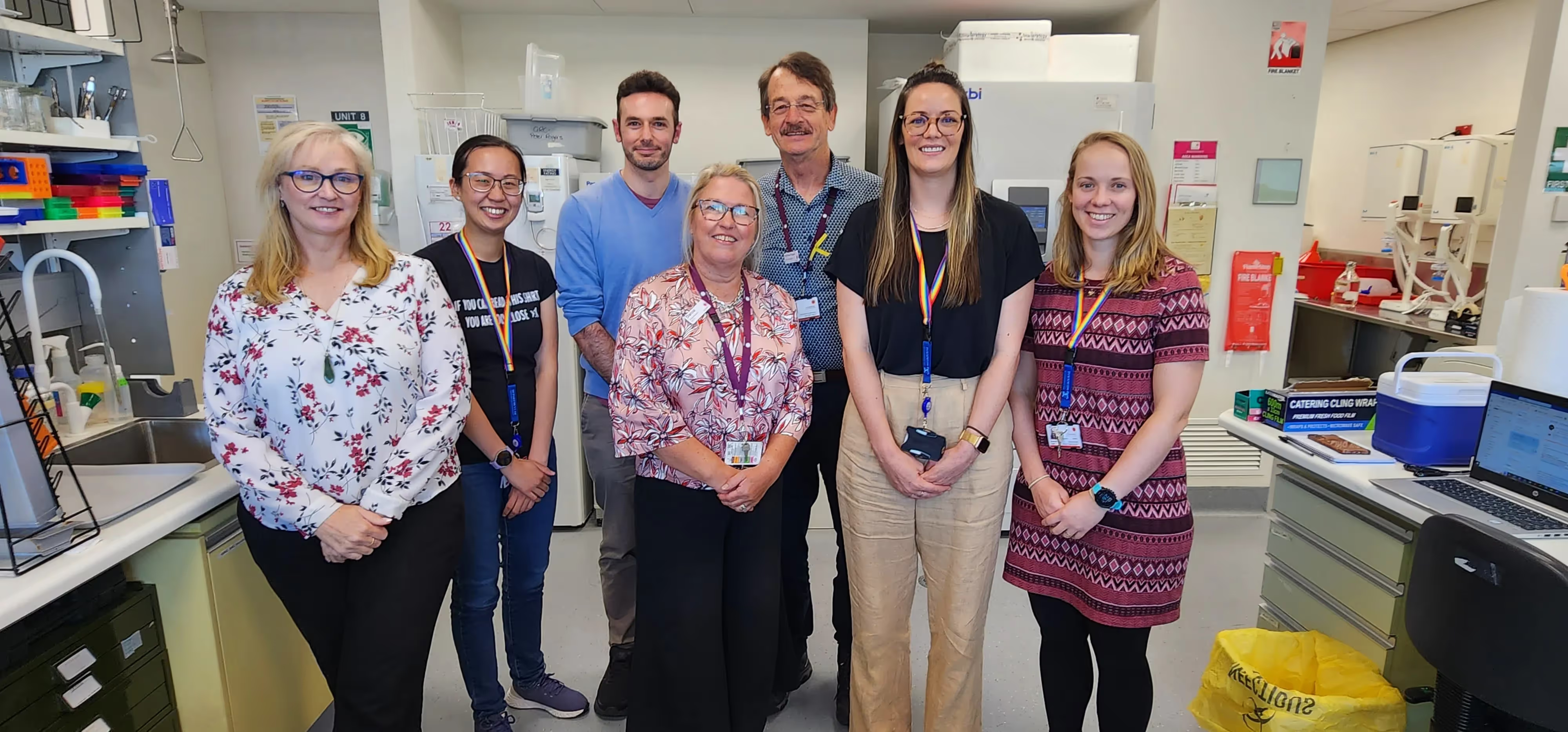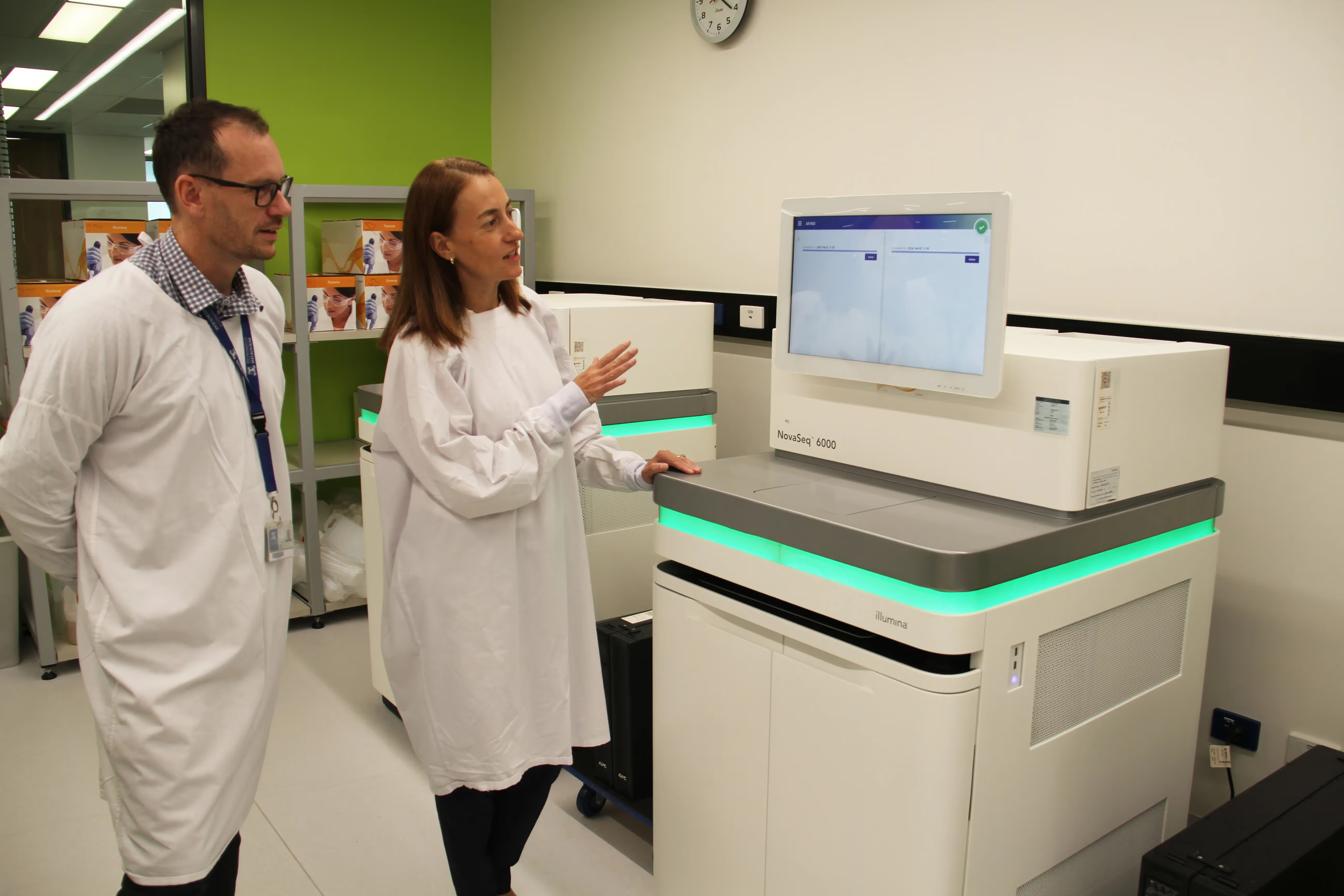

Innovation Projects

World-first clinical trial used genomics to refine prostate cancer care
Genomic testing and predictive disease modelling which guided therapy and reduced the burden of prostate cancer diagnosis.

Improving women's health outcomes through genomics
Next-generation sequencing found new solutions for patients with common endometrial-related health problems.

Ocular Genomics Hub
A comprehensive patient dataset of inherited retinal diseases, which supported the drive of new treatments and therapies for the most common cause of blindness.

Developing a Cancer of Unknown Primary (CUP) test
The development of a rapid multi-omic liquid biopsy blood test which utilised whole genome sequencing to resolve the difficult diagnosis of cancer of unknown primary origin.

Liquid Biopsy Project
The University of Melbourne Centre for Cancer Research’s clinical genomics team received support from the TAGC Innovation Fund to pioneer a less invasive way to collect tumour information from a simple blood test by deciphering small amounts of cancer-specific mutations in the bloodstream known as circulating tumour DNA (or ctDNA).

ID Predict
Researchers at the Doherty Institute, in collaboration with computational biologists at the Melbourne School of Engineering and the Walter & Eliza Hall Institute received a $2 million grant to better understand disease progression in patients with COVID-19.